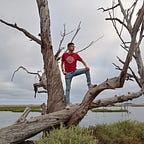How Fiction Does Affect Reality
Every story has an impact in us
Many think that fiction does not influence how we behave or events that happen all over the world. Well, let me prove them wrong.
Every sort of fiction has a message to deliver to the audience. Everything we see and every word we read and listen to affects us. New ideas and thoughts flow in our heads.
Characters from many fictional stories inspire children and men to be braver, wiser, and kind. Think about the stories that you heard as a child. Most of them taught us about accepted behaviors and the consequences of misbehaving.
Fiction for children is generally educational. As a child, we learn from what we are exposed to. Thus, communities teach children about values, the arts, and the sciences while they are still malleable.
But, even as grown men and women, fiction can play a role in our daily lives. We sympathize with characters and their struggles which mirror ours. Life isn’t fair, but if this character could overcome the odds and succeed. So do I.
Fiction is an amalgamation of our experiences and knowledge of the real world. They are creations of human experiences and knowledge.
Well, now let’s go over some examples of works of fiction that did affect real life.
Mallevs Maleficarvm
Mallevs Maleficarvm (The Hammer of Witches or The Witch Hunters Bible) by Heinrich Kramer in 1486. It was directly responsible for the witch purges in Europe.
Kramer wrote this book to directly attack anyone that opposed his authority and the Catholic church. In the book, he does state that both men and women could become witches, but women were more likely to be one. Kramer decided that women were more likely to succumb to the temptations of the devil.
Thru manipulation and fear, people believed what Kramer wrote. And if anyone dared to stand in his way. They would be tried as heretics and punished just like a witch.
This book led to hundreds of thousands of deaths that continue to this day. Fear is a powerful force.
Jaws
The novel was written by Peter Benchley in 1974. Later, it was adapted into the famous film directed by Steven Spielberg in 1975, sparking an irrational fear of sharks. All over the world.
Yes, sharks are deadly predators. But they don’t eat bunches of people at the shores of the beach like in the movie. They don’t kill for pleasure. Sharks only eat what is enough for their survival.
Unfortunately, the fear caused by the movie led too many people to start hunting down sharks. Innocent sea creatures are misunderstood by many. Their reputation was stained for many decades.
After educating himself more on the true nature of sharks and their importance to the marine environment, Benchley donated to many shark conservation organizations and advocated for their conservation. He knew that he was partially responsible for what happened.
Instead of comfortably enjoying the profit he made out of the book, he chose to do the right thing. He fought for what was right till he died in 2006. He made his amends and did something about what his book started.
Thankfully most people are more aware of the real nature of sharks. There are laws and environmental conservation efforts that aim to protect shark populations.
“Fahrenheit 451” by Ray Bradbury and “1984” by George Orwell
Both of these well-known novels aim to warn us about totalitarian governments. They were written during the cold war. People feared communism but blindly believed every word the government said.
Thus, both authors wrote these novels to raise awareness of what could happen if we give too much control to the government. People have some skepticism about the intentions of politicians.
In the worlds created by Orwell and Bradbury, people are constantly monitored by the government. The police instead of looking over the safety of people, force them to follow laws and rules which would be seen as violations of human rights nowadays.
They succeeded in teaching many generations for many decades. Students are assigned to read these books, analyze their many lessons, and write essays on what they have learned. So, generations to come can prevent what happens in these books from happening in real life.
In the end, fiction does affect us on a deeper level that sometimes we don’t realize. So, the next time you write or produce any type of fiction. Keep in mind that it can affect your audience in many ways.
